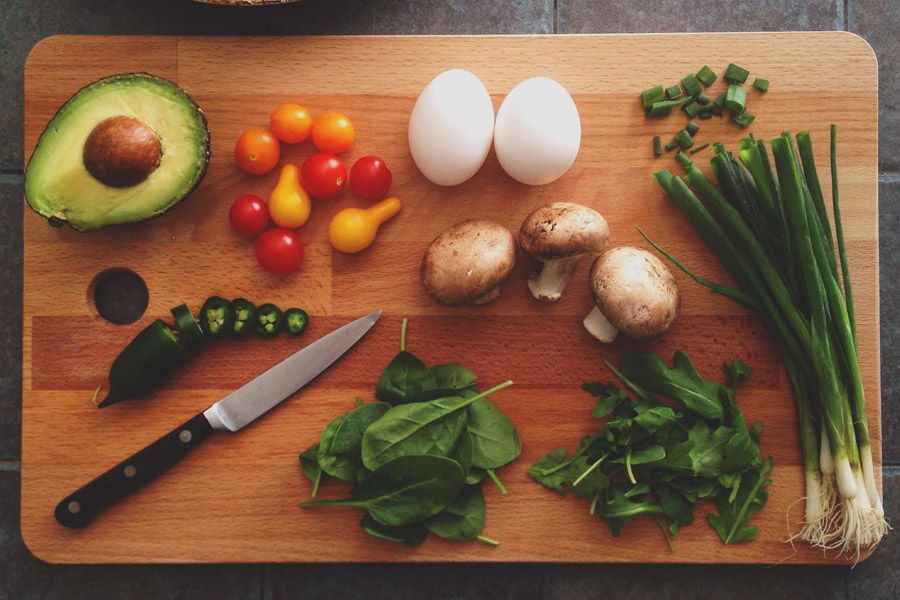As exam season is just around the corner, it’s so important to feed your brain to give it the best chance at retaining information. But don’t panic! It’s not all about the salads and changing your entire diet; here are some simple nutritional rules and some of the most effective foods to boost your brain while you study.

Basic Rules to improve brain function
1. Keep hydrated!
The most important food for the brain is water - because fluid promotes blood circulation and oxygen flow in the body. Our brain consists of three-quarters of water, so you should aim to drink around two to three liters a day. If we get dehydrated the dendrites that absorb information in the brain shrink and the brain’s performance deteriorates.
2. You don’t have to skip the carbs!
Needless to say, the brain needs a lot of energy to run properly and one way it gets this is through carbohydrates. Ideal sources of energy are the complex, long-chain carbohydrates (multiple sugars) made from whole grains, vegetables, potatoes, legumes, and fruit. Try to spread it out throughout the day, too, so that the brain gets an evenly distributed supply of energy. The short-term memory also functions better after breakfast than before, because the brain has sufficient "fuel" again.
3. Maybe don't go out this week?
Avoid alcohol, white flour products, and sweets as much as possible. These foods only cause blood sugar levels to rise sharply for a short time, which leads to an increased release of insulin and a rapid drop in blood sugar while excessive alcohol consumption destroys brain cells.
4. Watch your portion sizes.
Eating very large and very fatty meals puts a lot of strain on the stomach and there is less energy left for the brain. Three easily digestible, full meals a day averaging 600 kilocalories each are ideal, with two to three snacks with 50-100 kilocalories in the form of fruit, vegetable or nuts.

Foods worth including into your diet
To improve specific mental tasks, like memory and concentration, it is important to consume enough Omega-3 fatty acids. The brain uses them to build new brain and nerve cells, which are essential for learning and memory and it can boost our mood and help against depression – all we need during an exhausting exam period. Rich sources of Omega-3s are fatty fish, like salmon, trout, and sardines.
Broccoli is another superfood that can be easily incorporated into your diet. It can have positive impacts on brain performance and has anti-inflammatory and antioxidant effects, which may help protect the brain against damage.

Snacks that fuel your brain
While studying, we often tend to snack a lot - not even because we are hungry, but out of boredom. Instead of grabbing unhealthy treats, it is worth taking a minute to think about what to fuel our body and brain with.
Fruits
Fruits like watermelons, pineapple, orange, kiwi, plum, cherries, grapes, and apples are all good for brain function. Avocados are particularly good for mental performance. They have a high content of fatty acids, which promote blood circulation in the brain. Blueberries are also known to increase your brain's ability to think and perform.
Nuts and Seeds
Nuts supply the body with a lot of much-needed omega-3 which gives your brain the energy it needs to work at peak performance. Walnuts, for example, help concentration and relieve nervousness. Cashew nuts have a stress-inhibiting and positively regulating effect on protein and carbohydrate metabolism. Pumpkin seeds are rich in many micronutrients that are important for brain function, including copper, iron, magnesium, and zinc.
Cocoa
Dark chocolate and cocoa powder are packed with a few brain-boosting compounds, including flavonoids, caffeine, and antioxidants. The flavonoids in chocolate may help protect the brain. Studies have suggested that eating chocolate could boost both memory and mood. Get that chocolate in after all then!
Green Tea
Green tea is an excellent drink to support your brain. Not only does it stimulate blood circulation and inflammation, but it also stimulates brain activity. Its caffeine content boosts alertness, while its antioxidants protect the brain and L-theanine helps you relax.

With the right diet, you can significantly increase the performance of your brain. You have better concentration, fight fatigue and are less stressed. Healthy eating also has a positive effect on your body. So why not give it a try, follow the rules and include some brain superfoods into your daily nutrition?
And most importantly – good luck with your exams!
Enjoyed this blog? Why not read: Surviving Exam Season: A Guide or The 16 Stages of the January Exam Period




